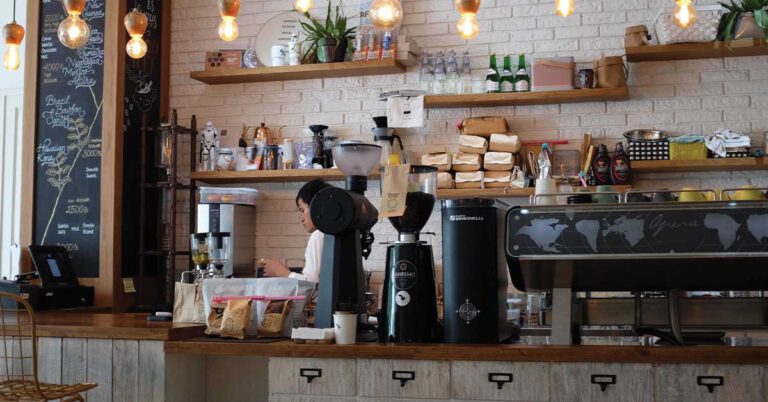The hospitality industry is always a tough one. Whether your hotel or other enterprise has been operating for years or has just begun, you need to know how to implement key best practices to maximize revenue, guest retention, and brand reputation.
Not sure where to start? Today, let’s take a look at five best practices you can use to ensure your hospitality business runs successfully.
Focus on Procedure Implementation
“Procedure implementation” essentially means you should ensure that every plan or operational sequence you set up is carried out and followed through by your staff members. This is easier said than done.
For example, say that you have a tried-and-true system to make sure that all guests are checked in and accounted for by the end of the night, and records are made to ensure that each guest in need of a complimentary breakfast or other service is attended to in the morning first thing. That system must be followed by each of your staff members, not just some of them.
Why? If the procedures at your hospitality business aren’t followed universally, there will be a lot of miscommunication, and guests won’t know what to expect when they approach one of your staff members. More than that, you’ll have a very difficult time tracking:
- Who has been served
- Who has checked in or out
- What the status of your inventory and supplies is
- And more
To that end, as the hospitality business manager, you should attempt to implement your procedures carefully and rigorously. Make sure that your staff members know what procedures they need to follow – double down on training as necessary to guarantee great results.
Use the Right Technology
Of course, you should also use the best technology possible when running your day-to-day operations. The best hospitality businesses don’t use handwritten logbooks and storage records, for example – they use modernized, digital variations of these records to ensure accuracy and security.
You can and should use technology for:
- Checking guests in and out of your institution
- Recording inventory for food products, cleaning supplies, and much more
- Providing guests with memorable experiences
- Enabling easy payments from your guests
As an example, Gravity Payments makes it easy to take advantage of scalable, powerful payment technology and POS systems for your hospitality location. Not only will you be able to accept payments from your customers at any hotel or bed and breakfast – including remote, out-of-the-way locations like vacation cabins – but you’ll also be able to enjoy 24/7 multilingual customer support and high-quality, PCI-compliant security.
This is just one example of how you should leverage modern technology as much as possible to streamline your operations and improve security across the board. Another idea is to look for card terminals with features such as fast transaction processing and low fees to help streamline your operations and create a better experience for your customers when conducting payments.
With the right technologies, such as the examples described above, every effort your staff makes will be much more successful. On top of that, technology could help you improve your cash flow by cutting down on unnecessary costs.
Monitor the Quality of Food and Service
Naturally, you have to make sure the food service you provide in your hospitality industry business is top-notch at all times. After all, if people don’t like the food you serve for the hospitality your staff provides, they won’t come back to your business again and again!
With that in mind, hold regular tests for the food items on your menu, especially if you are opening a new hotel restaurant for the first time. Make sure your chef is producing every recipe up to snuff for the delight of your customers/guests. Similarly, you should undertake regular reviews of the processes and performance of your service staff members, such as house cleaners, concierge, etc.
If a customer has a complaint or concern about either the food or the service quality, listen to them. That could be important information you can use to make your hospitality business that much better.
Be Professional When Handling Complaints
Speaking of complaints, if you ever receive them from your guests, don’t become unprofessional, insulted, or personally offended. Complaints are part and parcel of the hospitality business model – think of them as data points you can use to prevent the same issues from cropping up for future guests later down the road.
Instead of taking complaints personally:
- Acknowledge that your guest has a serious issue you need to address
- Get as much information from the guest as you can. Don’t argue if there’s a matter of opinion – how a guest feels is more important than whether they are technically correct about one issue or another
- Promise to do what you can to rectify the situation, even if the guest leaves or says that you won’t get their business anymore
By following these three steps, you’ll maintain a professional, responsible front for your hospitality business. Not only will this look good in front of other guests, but it will help you maintain the frame of mind you need to immediately start fixing the complaint’s source.
Lead and Motivate
The above also ties into another best practice you should remember when running a hospitality business: lead by motivating your staff members. The best hospitality managers have inspiring personalities and motivate everyone to do their best 24/7.
This isn’t to say you can’t or shouldn’t discipline staff members who need correction. However, you should try to praise staff members when they do things correctly and motivate them by giving them the tools they need to thrive and solve customer issues promptly.
By motivating your team through your leadership, your guests will have more satisfying stays, and your workforce overall will be more effective, efficient, and productive. Not to mention, this should have positive impacts on your workplace culture in no time.
Wrap Up
Ultimately, these best practices will help you plan and run your hospitality enterprise successfully and efficiently. Armed with the best technology and best procedures, you’ll provide top-notch service to your guests time and again, and your hotel or other business will see its reputation rise in no time.




